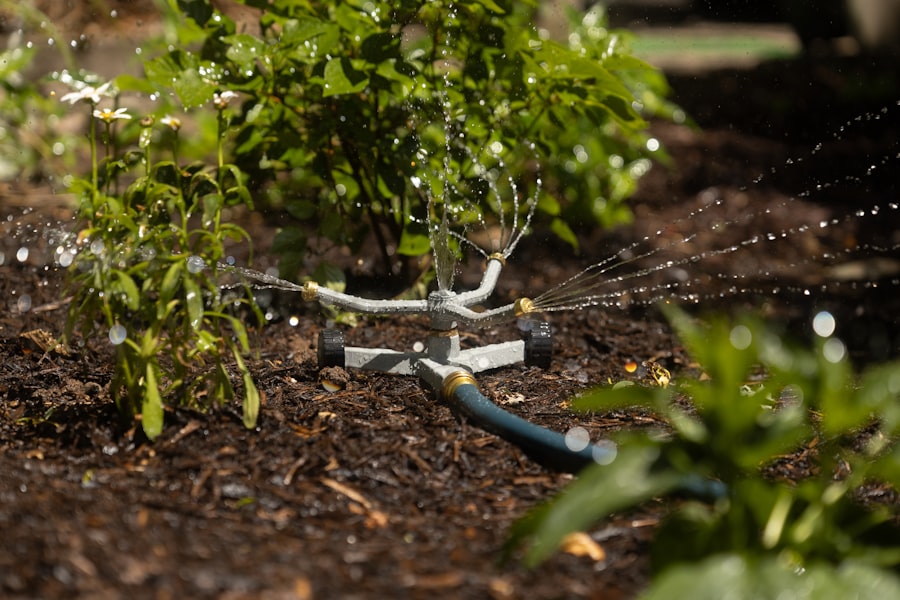Raccoons are intelligent and dexterous nocturnal animals that pose a significant threat to backyard chicken coops. Their climbing abilities allow them to easily scale fences and walls, gaining access to chickens and eggs. Raccoons’ sharp claws and teeth make them efficient predators, capable of causing substantial damage to both the coop and its inhabitants in a short period.
Chickens are particularly vulnerable to raccoon attacks due to their limited defensive capabilities. Raccoons, being opportunistic feeders, are attracted to chicken coops as a readily available food source. Furthermore, raccoons can carry various diseases and parasites that may be transmitted to chickens, presenting additional health risks to the flock.
The intelligence and resourcefulness of raccoons make them adept at manipulating objects and finding ways to enter coops. Their problem-solving skills and persistence make them a formidable threat to chicken owners. Understanding raccoon behavior and capabilities is crucial for implementing effective protective measures to safeguard chickens from these cunning predators.
Table of Contents
- 1 Securing the Coop: Fortifying Your Chicken Enclosure
- 2 Deterrents and Repellents: Natural and Commercial Solutions
- 3 Nighttime Defense: Protecting Your Flock After Dark
- 4 Proper Waste Management: Minimizing Attractants for Raccoons
- 5 Monitoring and Surveillance: Keeping an Eye on Potential Threats
- 6 Seeking Professional Help: When to Call in the Experts
- 7 FAQs
- 7.1 What are some effective ways to keep raccoons away from chickens?
- 7.2 Why are raccoons a threat to chickens?
- 7.3 What are some signs that raccoons are targeting my chickens?
- 7.4 Are there any natural deterrents for keeping raccoons away from chickens?
- 7.5 How can I make my chicken coop less attractive to raccoons?
Key Takeaways
- Raccoons pose a threat to chickens by preying on them for food and eggs.
- Fortify chicken enclosures with sturdy materials and secure locks to prevent raccoon entry.
- Use natural deterrents like predator urine and commercial solutions like motion-activated lights to keep raccoons away.
- Protect your flock at night by locking them in a secure coop and installing predator-proof fencing.
- Minimize attractants for raccoons by properly managing chicken waste and keeping the coop area clean.
- Keep an eye on potential threats by installing surveillance cameras and regularly monitoring the chicken enclosure.
- Call in professional help if raccoon infestation becomes unmanageable or if you need assistance in fortifying your chicken coop.
Securing the Coop: Fortifying Your Chicken Enclosure
Inspect and Reinforce the Perimeter
Start by inspecting the perimeter of the coop for any potential entry points, such as gaps in the fencing or holes in the walls. Use hardware cloth with a small mesh size to reinforce the fencing, as raccoons can easily squeeze through larger openings.
Additional Security Measures
Additionally, consider adding a predator apron around the base of the coop to prevent raccoons from digging underneath the fencing. Install locks or latches on all doors and windows to prevent raccoons from prying them open. Consider adding a second layer of protection, such as a heavy-duty door or metal bars, to further deter raccoon break-ins.
Maintain a Secure Environment
Trim any overhanging branches or vegetation near the coop that could provide raccoons with easy access to the roof or walls. By fortifying your chicken enclosure with these measures, you can significantly reduce the risk of raccoon attacks and keep your flock safe and secure.
Deterrents and Repellents: Natural and Commercial Solutions

There are various natural and commercial deterrents and repellents that can be used to discourage raccoons from targeting your chicken coop. One natural solution is to use predator urine, such as that of coyotes or foxes, around the perimeter of the coop to create a scent barrier that will deter raccoons. Additionally, planting strong-smelling herbs like lavender, mint, or rosemary near the coop can help repel raccoons with their potent aroma.
Commercial repellents such as motion-activated sprinklers or ultrasonic devices can also be effective in deterring raccoons from approaching the coop. These devices emit a burst of water or high-frequency sound when they detect motion, startling and repelling raccoons. Another option is to use commercial repellent sprays that contain natural ingredients like pepper or garlic, which can irritate a raccoon’s senses and discourage them from coming near the coop.
By utilizing natural and commercial deterrents and repellents, you can create an environment that is unappealing to raccoons and reduce the likelihood of them targeting your chicken coop. Whether using predator urine, strong-smelling herbs, motion-activated sprinklers, ultrasonic devices, or commercial repellent sprays, there are various options available to effectively deter raccoons and protect your flock.
Nighttime Defense: Protecting Your Flock After Dark
Raccoons are primarily nocturnal animals, making nighttime defense a critical aspect of protecting your flock from potential attacks. Ensure that all chickens are securely locked inside the coop at night, as this is when raccoons are most active in their search for food. Use sturdy locks or latches on all doors and windows to prevent raccoons from gaining access to the coop while your chickens are roosting.
Consider installing motion-activated lights around the perimeter of the coop to deter raccoons from approaching. These lights will startle raccoons and make them feel exposed, prompting them to retreat. Another option is to use night-vision cameras or infrared sensors to monitor activity around the coop at night.
By implementing these nighttime defense measures, you can significantly reduce the risk of raccoon attacks and keep your flock safe while they sleep. Protecting your flock after dark is crucial in preventing raccoon attacks on your chicken coop. Ensure that all chickens are securely locked inside the coop at night and use sturdy locks or latches on all doors and windows.
Consider installing motion-activated lights or using night-vision cameras to monitor activity around the coop at night. By taking these nighttime defense measures, you can effectively deter raccoons and safeguard your flock while they rest.
Proper Waste Management: Minimizing Attractants for Raccoons
Proper waste management is essential in minimizing attractants for raccoons and reducing the likelihood of them targeting your chicken coop. Keep food and water sources inside the coop during the night to prevent attracting raccoons. Store chicken feed in secure containers that are resistant to tampering by raccoons, and clean up any spilled feed promptly to avoid attracting unwanted visitors.
Regularly remove any fallen fruit or vegetables from the area around the coop, as these can also attract raccoons in search of food. Properly dispose of any food scraps or kitchen waste in sealed containers to prevent odors from attracting raccoons. By implementing proper waste management practices, you can minimize attractants for raccoons and create an environment that is less appealing to these opportunistic predators.
Minimizing attractants for raccoons through proper waste management is crucial in reducing the likelihood of them targeting your chicken coop. Keep food and water sources inside the coop during the night, store chicken feed in secure containers, and promptly clean up any spilled feed. Remove fallen fruit or vegetables from the area around the coop and properly dispose of food scraps in sealed containers.
By following these waste management practices, you can effectively minimize attractants for raccoons and protect your flock from potential harm.
Monitoring and Surveillance: Keeping an Eye on Potential Threats

Monitoring and Surveillance
Monitoring and surveillance are crucial in protecting your flock from potential threats, including raccoons. Installing security cameras around the perimeter of the coop can provide valuable insight into any potential threats and help you take proactive measures to protect your flock. These cameras can monitor activity and deter raccoons from approaching.
Regular Inspections and Alarms
Regularly inspect the perimeter of the coop for signs of raccoon activity, such as tracks or droppings, and take appropriate action if necessary. Consider using motion-activated alarms or sensors that will alert you to any potential intrusions by raccoons. This will help you stay one step ahead of raccoons and ensure the safety of your flock.
Staying Vigilant
By staying vigilant through monitoring and surveillance, you can effectively protect your flock from potential harm. Keeping an eye on potential threats is crucial in preventing raccoon attacks. Install security cameras, regularly inspect the perimeter, and consider using motion-activated alarms or sensors for added security.
Seeking Professional Help: When to Call in the Experts
In some cases, dealing with raccoon threats may require professional assistance. If you have tried various deterrents and repellents without success, it may be time to call in experts who specialize in wildlife control. These professionals have the knowledge and experience to effectively address raccoon infestations and implement long-term solutions to protect your flock.
Professional wildlife control experts can conduct a thorough assessment of your property to identify potential entry points for raccoons and develop a customized plan to fortify your chicken coop. They can also provide guidance on proper waste management practices and offer recommendations for ongoing monitoring and surveillance. If you are facing persistent challenges with raccoon threats, seeking professional help may be necessary to ensure the safety and well-being of your flock.
When dealing with persistent challenges related to raccoon threats, it may be necessary to seek professional help from wildlife control experts. These professionals have the knowledge and experience to effectively address raccoon infestations and implement long-term solutions to protect your flock. They can conduct a thorough assessment of your property, develop a customized plan for fortifying your chicken coop, and provide guidance on proper waste management practices.
By calling in experts when needed, you can ensure the safety and well-being of your flock while effectively addressing raccoon threats. In conclusion, protecting your backyard chicken coop from raccoon threats requires a multi-faceted approach that includes fortifying the enclosure, using deterrents and repellents, implementing nighttime defense measures, managing waste properly, monitoring potential threats, and seeking professional help when necessary. By understanding the behavior and capabilities of raccoons, fortifying your chicken enclosure with secure locks and fencing, using natural and commercial deterrents, implementing nighttime defense measures, managing waste properly, monitoring potential threats through surveillance, and seeking professional help when needed, you can effectively protect your flock from raccoon attacks and ensure their safety and well-being.
If you’re looking for tips on how to keep raccoons away from your chickens, you may also be interested in learning how to care for goslings. Check out this article for helpful information on raising and caring for these adorable birds.
FAQs
What are some effective ways to keep raccoons away from chickens?
Some effective ways to keep raccoons away from chickens include securing the chicken coop with strong locks, using motion-activated lights or sprinklers, and installing an electric fence around the coop.
Why are raccoons a threat to chickens?
Raccoons are a threat to chickens because they are skilled predators and can easily break into chicken coops to prey on the birds. They are also known to carry diseases that can be harmful to chickens.
What are some signs that raccoons are targeting my chickens?
Some signs that raccoons are targeting your chickens include missing or injured birds, damage to the chicken coop or fencing, and the presence of raccoon tracks or droppings near the coop.
Are there any natural deterrents for keeping raccoons away from chickens?
Some natural deterrents for keeping raccoons away from chickens include using strong-smelling substances like ammonia or predator urine around the coop, and planting thorny bushes or shrubs near the coop to create a barrier.
How can I make my chicken coop less attractive to raccoons?
You can make your chicken coop less attractive to raccoons by keeping the area around the coop clean and free of food scraps, securing any potential entry points, and removing any potential hiding spots for raccoons.
Meet Walter, the feathered-friend fanatic of Florida! Nestled in the sunshine state, Walter struts through life with his feathered companions, clucking his way to happiness. With a coop that’s fancier than a five-star hotel, he’s the Don Juan of the chicken world. When he’s not teaching his hens to do the cha-cha, you’ll find him in a heated debate with his prized rooster, Sir Clucks-a-Lot. Walter’s poultry passion is no yolk; he’s the sunny-side-up guy you never knew you needed in your flock of friends!







